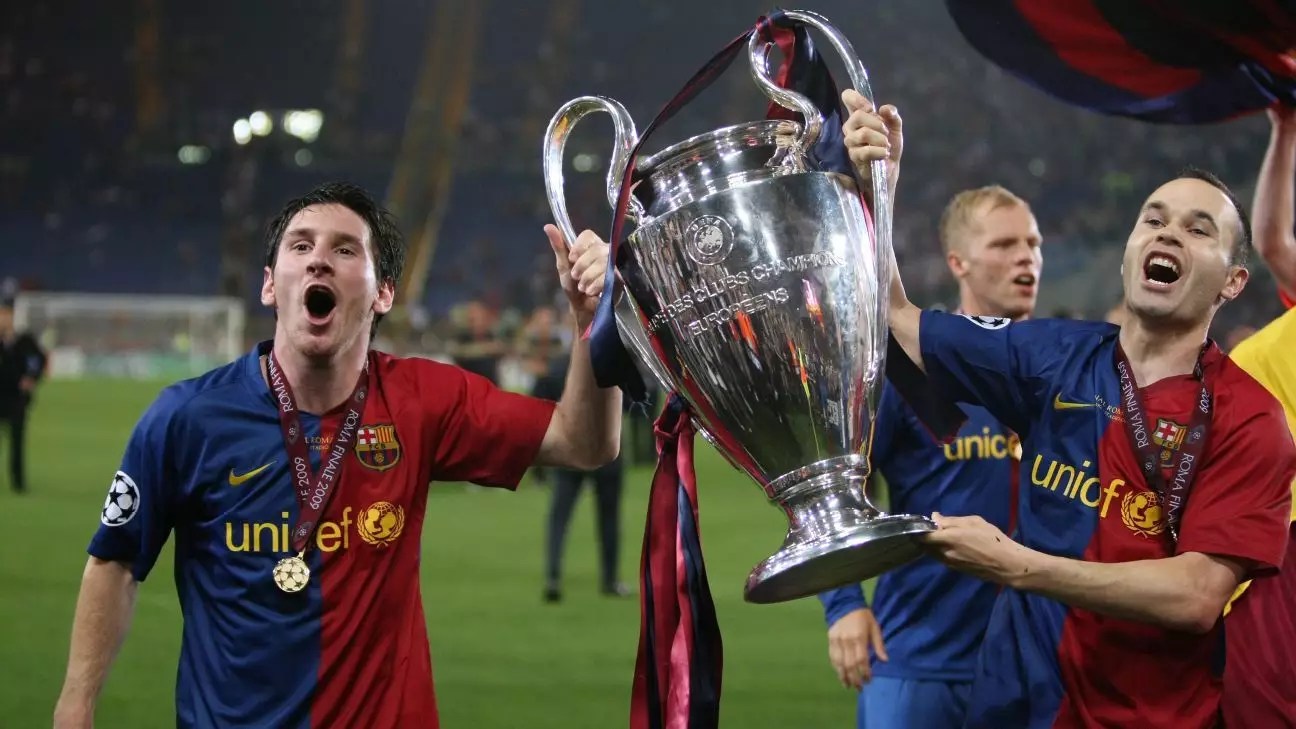FC Barcelona is a football institution steeped in a rich tapestry of history, celebrated for its remarkable achievements over the past 125 years. At the heart of this celebration stands Lionel Messi, a name that resonates deeply with fans and connoisseurs of the sport alike. In a heartfelt interview coinciding with the club’s anniversary, Messi expressed his nostalgia for his former club following his move to Inter Miami. This commentary serves not only as a reflection on Messi’s personal journey but also sheds light on the broader implications of Barcelona’s evolution in the increasingly commercialized sport of football.
From his arrival as a precocious teenager in 2000, Messi’s connection to Barcelona has been profound. Over the course of 21 years, he not only emerged as the club’s all-time leading scorer—netting a staggering 672 goals in 778 matches—but also became the embodiment of Barcelona’s values and aspirations. As Messi reminisced during the anniversary celebrations, he encapsulated the essence of his journey, stating, “I am lucky that God led me there, and I was able to spend most of my life at such a wonderful club.” Such reflections illuminate how deeply the player’s identity has become intertwined with that of FC Barcelona, propelling them to unprecedented heights in both domestic and international arenas.
Messi’s sentiments while reminiscing about Barcelona underscore a profound emotional connection. He noted, “I miss the club a lot, the city, the people, the affection,” highlighting the inseparable bond between the player and the club. This testament to his fondness serves as an important reminder that the allure of football transcends mere trophies; it is equally about the community, the shared experiences, and the lasting friendships that illustrate a player’s legacy. For many players, the club becomes a second home, and Messi’s expressions of nostalgia reaffirm this truth.
Since its founding in 1899 by Joan Gamper, Barcelona has amassed extraordinary accolades that are milestones in the footballing world. With a combined total of 36 La Liga titles and eight UEFA Champions League victories, the club holds an enviable position in the pantheon of football greats. Messi’s involvement in ten La Liga titles and four Champions League triumphs epitomizes the glorious era during which he donned the famous Catalan colors. His fondest memory—the historic sextuple in 2009—showcases Barcelona’s capabilities when all elements coalesce harmoniously, leaving an indelible mark on both fans and history.
Messi’s reflections are not merely a veneration of the past; they also hint at the challenges currently facing the club. He acknowledged that despite the club’s historic stature, “the difficulties that pose at the moment, given how things are managed in football these days,” remain a concern. This admission resonates with fans who are acutely aware of the financial and managerial challenges that have recently tested the fabric of the club. The contrast between Messi’s nostalgia and the current state of affairs illustrates the complexity of football in modern times, where financial sustainability increasingly influences the trajectory of storied institutions like Barcelona.
Barcelona’s motto, “Més que un club” or “More than a club,” embodies a promise that surpasses sporting excellence and delves into the cultural and societal influence of football. This philosophy is echoed by current first-team coach Hansi Flick, who expressed his awe at the club’s deep-rooted connections to its supporters and its historical significance. Flick’s optimistic outlook further supports the idea that while challenges exist, the essence of what Barcelona represents—community, unity, and resilience—will endear it to fans worldwide.
Messi’s reflections on FC Barcelona during its 125th anniversary celebration encapsulate the unique relationship between player and club, marked by shared triumphs, deep emotional ties, and an acknowledgment of contemporary challenges. As Barcelona stands on the threshold of new adventures, emboldened by its rich heritage and iconic players like Messi, the future remains bright. The ethos of “Més que un club” continues to inspire not only the players on the field but also the passionate supporters who have championed Barcelona through thick and thin.


Leave a Reply